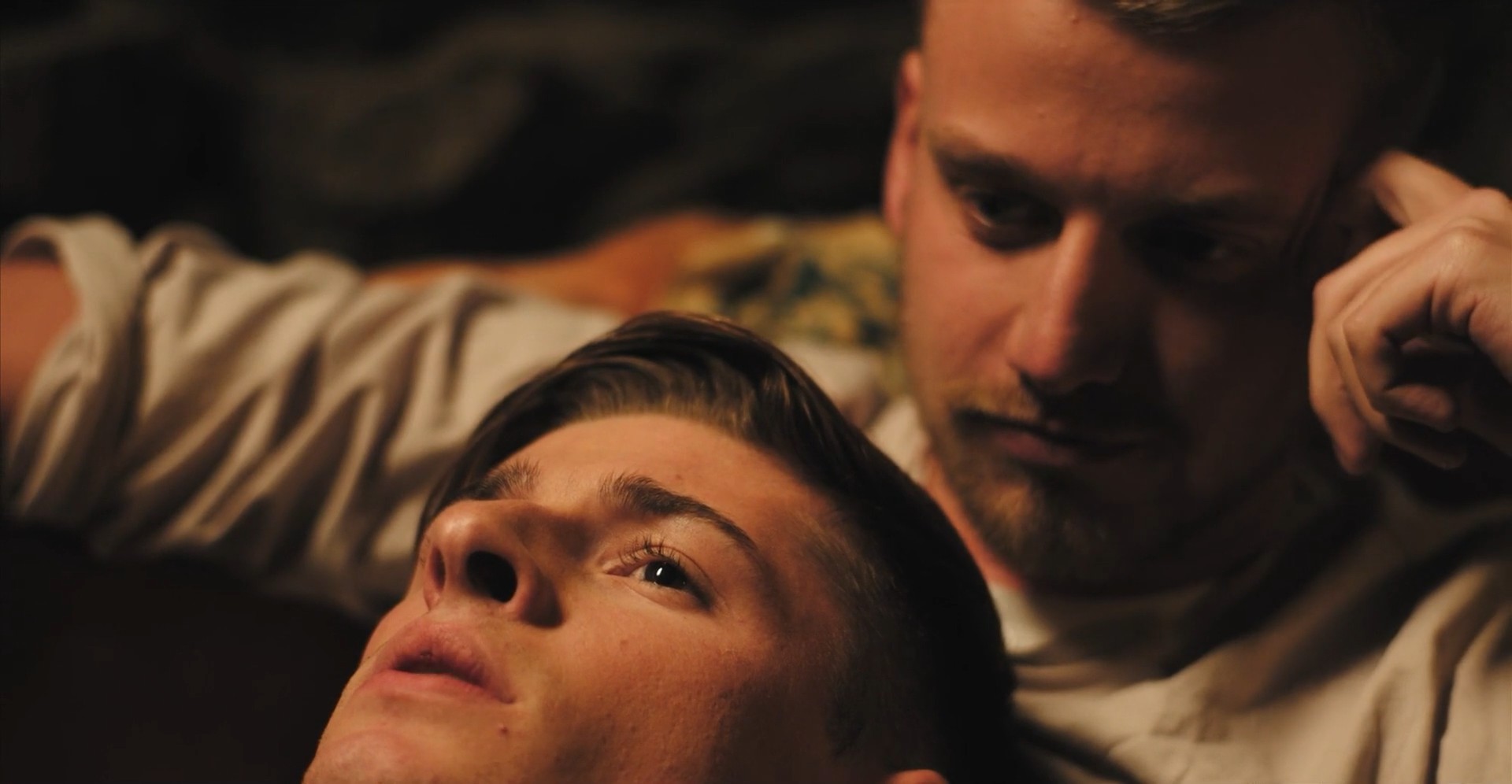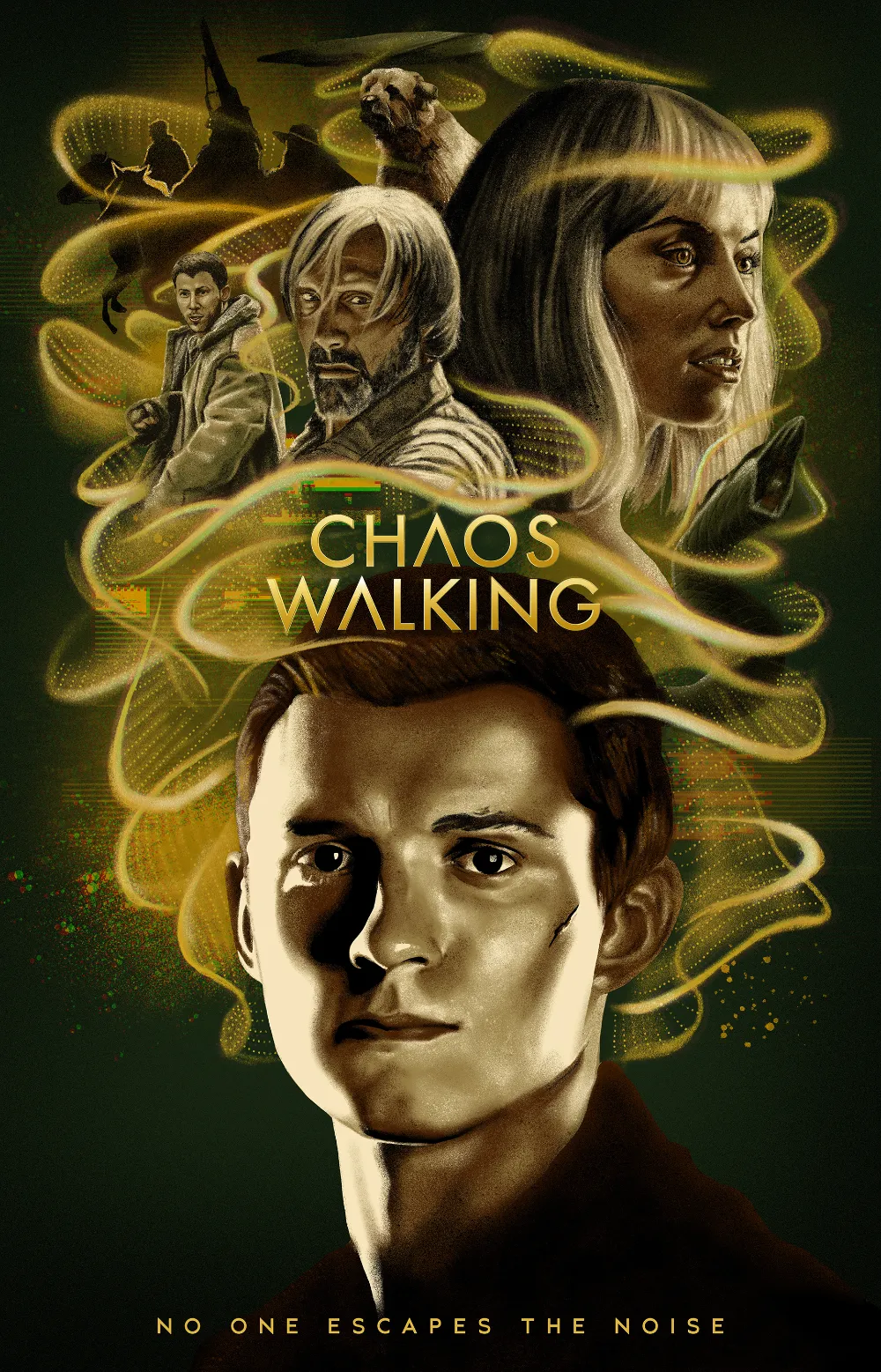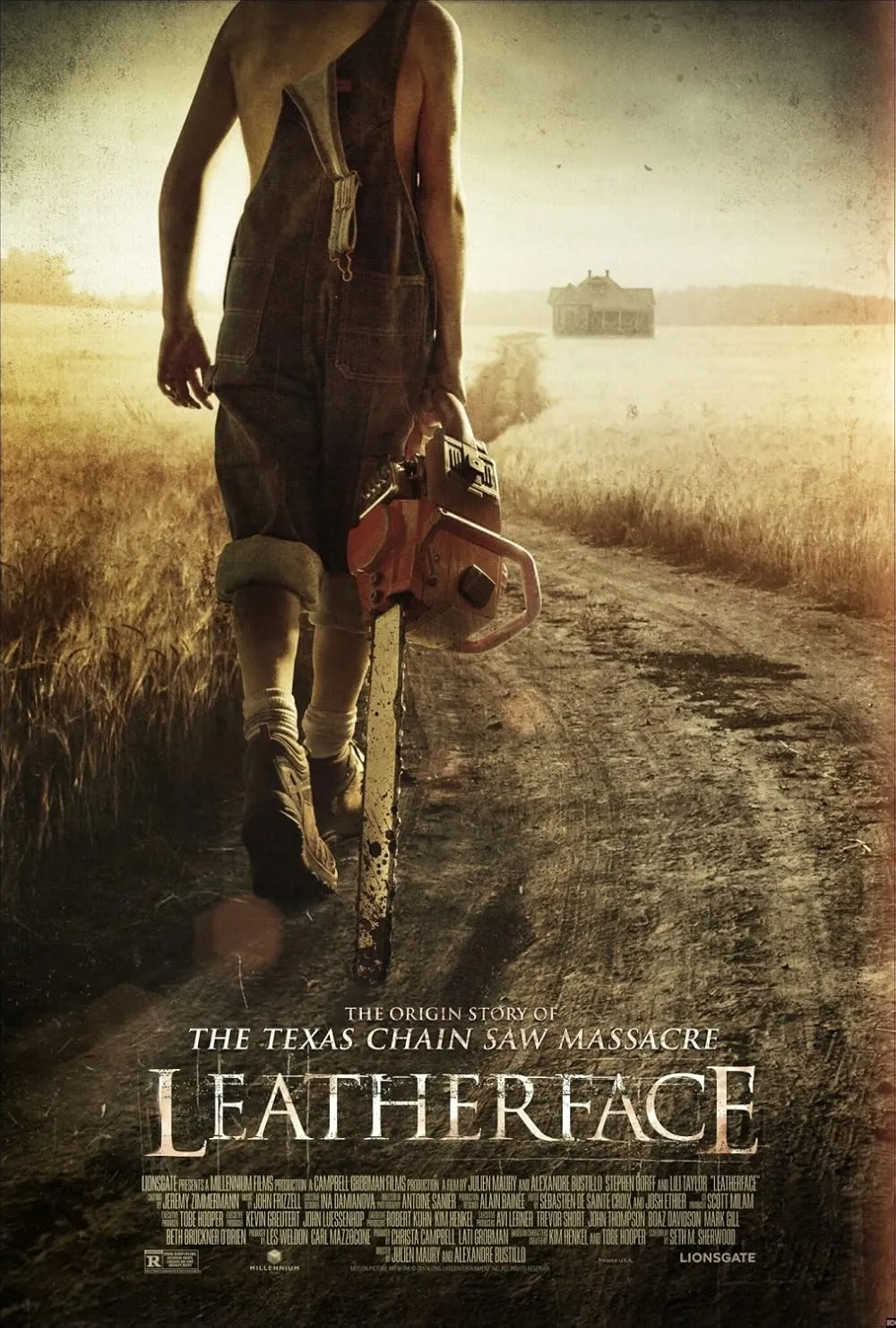Poof is a poignant 17-minute British short film that explores the complexities of self-discovery, identity, and the challenges faced by LGBTQ+ individuals in conservative environments. The narrative centers on Aaron, an 18-year-old young man feeling trapped in a small town, assisting his father in a job he despises. His life takes a transformative turn when he meets Mike at a party, leading to a clandestine relationship that forces Aaron to confront his true self.
The film delves into themes of repression, fear of rejection, and the longing for acceptance. Aaron's internal conflict between his desires and the societal expectations placed upon him mirrors the struggles faced by many in the LGBTQ+ community. The title Poof subtly alludes to the fleeting nature of the relationship and the ephemeral quality of self-acceptance in a world that often demands conformity.

Aiden Nord's portrayal of Aaron is both tender and raw, capturing the essence of a young man on the cusp of self-realization yet shackled by fear and societal norms. His performance resonates with authenticity, making Aaron's journey relatable to anyone who has grappled with identity and acceptance
Miles Higson, as Mike, provides a contrasting yet complementary presence. His character embodies confidence and openness, serving as a catalyst for Aaron's awakening. The chemistry between Nord and Higson is palpable, enhancing the emotional depth of their scenes together.
Howard Harling's portrayal of Aaron's father adds another layer of complexity to the narrative. His character represents the traditional and often prejudiced viewpoints that many LGBTQ+ individuals encounter within their families. The strained relationship between Aaron and his father underscores the challenges of reconciling personal identity with familial expectations.
🎥 Cinematic Techniques and Visual Storytelling
Dean Anderson's direction, combined with Matthew Bates' cinematography, employs visual storytelling to enhance the film's emotional impact. The use of lighting and color palettes reflects Aaron's internal turmoil and moments of clarity. For instance, scenes set in dimly lit environments symbolize secrecy and repression, while brighter settings signify moments of self-acceptance and freedom.
The film's pacing is deliberate, allowing audiences to immerse themselves in Aaron's world and experience his emotional journey. The subtle transitions between scenes mirror the gradual evolution of Aaron's understanding of his identity.

🏆 Reception and Impact
Poof has been well-received in various film festivals, including the Iris Prize Festival, where it was nominated for Best British Short, and the Cornwall International Film Festival, where it won Best Student Short. The film's success highlights the universal appeal of its themes and the effectiveness of its storytelling.
Critics have praised the film for its authentic portrayal of LGBTQ+ experiences. One reviewer noted, "The leads played by Aiden Nord (Aaron) and Miles Higson (Mike) are outstandingly good. The anguish of Aaron's struggle is portrayed to perfection by young Nord, and at the end of the film, you can see in his face the pain of having to let go of the very thing he wants the most."

🌍 Cultural Significance
In a world where LGBTQ+ narratives are often marginalized, Poof stands out as a testament to the power of short-form storytelling in addressing complex social issues. The film provides a voice to those whose stories are frequently overlooked, offering a glimpse into the challenges and triumphs of self-discovery and acceptance.
By focusing on the intimate journey of a young man coming to terms with his sexuality, Poof encourages dialogue and understanding, fostering a more inclusive and empathetic society



